Welcome to World Builders 3.0, an open-ended series that will run periodically on Fridays. For those who enjoyed the previous incarnations of World Builders, this next generation is going to zero in more on the process of world building itself while I work with fellow fantasy author and world building buff, Malkuthe Highwind to build through our posts a rigorous guide for fantasy world builders.
This week, to kick it all off, we start at the beginning, the question: where do you start?
John: So, my friend, I want to thank you for helping me set up my wiki. Finally, I have a wiki, where I’ll be formally building my world. We squashed lots of bugs to get things working and I’m excited to begin. The only thing is … where do I begin?
Malkuthe: That’s a bit of a tough question, I think, as far as world building goes, because there really isn’t a defined place that we as world builders can start. Sure, some people focus on characters and build a world around them, while some people take a narrative premise and start there. Other people, myself included, find bits and pieces of inspiration all over the place and then start there, building outward to create a world that could later be filled with stories and people.
John: In a way, what you’re saying is that world building is more of an art, and not a paint-by-numbers kind.
Malkuthe: Yes! That’s exactly it. World building is so complex and monolithic that trying to codify a process that every world builder has to adhere to is an exercise in futility. The best that we can accomplish ties directly into the distilled essence of world building: asking and answering questions. This is really the only way that a world, at least a compelling one, can come into being organically.
John: I can relate to that in my process, namely that for me, world building has always been an organic by-product of storytelling and I never set about the process of formally building my world. I’ve come to recognize, though, that this has led to serious flaws in my story, namely a lot of contradictions in the plot that arise from not having fully fleshed out some of the politics or motivations of groups or organizations.
Malkuthe: I’ve fallen prey to similar problems in the past, and originally, I thought it was about all the details that I was missing, but then I came to realize that really, the problem was that even if I was writing out all the details for these organizations in my world, I wasn’t really coming to understand them, both as an individual within the organization, and as the larger world outside of it. It wasn’t so much that I wasn’t fleshing these entities out, but rather, the problems came from the fact that I was asking the wrong questions.
John: Which brings me to this collaboration we’re now calling World Builders 3.0, and how this began almost a year ago when in our conversations I said, “I want to know how to do this right.” I think as a kick-off for this series of blog posts, where we will aim to develop a helpful process and method for world builders, it’s good to explore just where to start.
Keeping in mind that yes, there is no one true way or grand unified theory of how to build a world, what would you say are the three most important things one should ask when setting out to formally building their world?
One fundamental question to kick off world building
Malkuthe: Well, I think that any world builder should start by asking a few meta questions about their world.
- Why are you building this world?
- What is the purpose of this world?
- Who are you building this world for?
Those are the three most important things I think that anyone should ask before even attempting to build a world.
John: Those are great questions. In particular, the first questions really has lots of depth, just like most “why” questions in fiction tend to be the ones that lead deeper. In fact, why don’t we call that our level 0 question, the place where things start.
Malkuthe: Sure! The other two questions are important, and I’m sure you could ask other meta-questions, but you’re right in that the latter two questions are more personal and important, but if you want a great starting question, the first one is great because it essentially asks, “How are you going to approach your world building.” We all have different ways we’re going to approach world building. What about you? How do you approach it?
John: When I approach world building, it’s for my story. Don’t get me wrong, fascination with Tolkien’s process of bringing a world to life is what got me into fantasy writing and it was the act of building my world that came before I had any success getting a story to hold together, but really, from the beginning, it’s been the stories that define my process. Even going back to when I was twelve and walking my morning paper route dreaming up fantasy world ideas, these were all centered around mythic stories or historic stories. I got fascinated about and explored my developing world as a result of exploring the stories that formed when I thought about it.
So for me, it’s about the story, that’s why I’m doing this, and my world building is to make the story more cohesive.
Malkuthe: For me, I often world build to bring ideas I have in my head to life—to play god, in some sense. To me, world building is less about the story and more about creating something that could effectively function as a simulation, were there powerful enough computers for it. I want to make a world that, in some far-flung sci-fi future where Virtual Reality is king, I could live in…
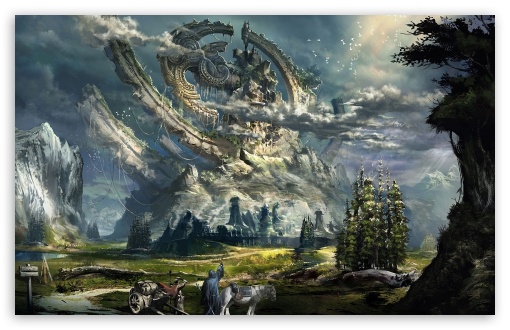 John: Wow! Now that you describe your process like that I can relate. Last winter when I was designing all the maps and working with a programmer to develop the Blood Dawn game, I got excited about the idea of bringing my world to life through simulation and wondered about exploring non-linear narrative through a RPG-esque simulation. For example, instead of reading a book, the world could tell its story through the process of a given user wandering through the world environ and encountering / finding out about elements of the world, and using that in turn to unlock aspects of the world.
John: Wow! Now that you describe your process like that I can relate. Last winter when I was designing all the maps and working with a programmer to develop the Blood Dawn game, I got excited about the idea of bringing my world to life through simulation and wondered about exploring non-linear narrative through a RPG-esque simulation. For example, instead of reading a book, the world could tell its story through the process of a given user wandering through the world environ and encountering / finding out about elements of the world, and using that in turn to unlock aspects of the world.
Stepping back and thinking about this a bit more, it sounds like we have two ways to approach world building, based on these three meta-questions. I suppose this could mean, depending on one’s answer, there could be unique approaches to subsequent world building depending on your answer.
For this one question, 6 answers are the gateway to another level of questions
Malkuthe: Oh, definitely! You are doing world building to solidify a plot, while I am doing it to make a setting more vivid, and for that reason, our answers to the three questions are, while similar, quite different. There are many other reasons to world build, though, and none of these are necessarily mutually exclusive, either. For example, you could build a world that both helps the plot along and is good enough to be a simulation. I think that some writers even focus on a single character and then create a world around them to fit their backstory and make it more compelling. I’ve done that before, although it wasn’t necessarily a single character that I worked with, but rather a pair of them. The world grew not from their individual qualities, but rather from the dynamic between them. How about you? Have you ever done world building for other motives?
John: Well, although I build for my story, in truth I’ve always built with the desire to bring the world I encounter in story to life. It’s that fascination with the world itself that you see around you that makes me want to stop and explore a little. My fascination with world building goes back to childhood and Tolkien’s maps, wondering what was in the spaces on the pages that he never fleshed out, wishing we’d find a zoomed-in map of some part of Middle-earth never before seen. I wanted to go there.
As I started creating my own stories, I would draw maps, make languages, create peoples and races and families and exotic calendars. I organized my notes into directories and loved that finally I had the freedom to do what I couldn’t do with my wishful thinking over Middle-earth. For me as a fantasy writer, it was the ability to create a world and know no end to where I can turn my eye that compelled me to devote my vision as a writer on one world, one narrative that brings that world to life.
But even that got me curious about world building itself because as I wrote Blood Dawn, for example, I found that there are other worlds, or hints of them, and I realized that rooting myself in one world doesn’t mean that’s the only world that exists and can be explored. Needless to say, the process of storytelling is a gateway to the realm of world building and I’ve been immensely curious about world building in and of itself and how I might approach it as its own art separate from storytelling, a sort of parallel pursuit separate from the work I do as a writer – parallel but complementary the way a left hand fits in a right hand.
Malkuthe: Case in point. Whatever your motives might be for building a world, whether you’re building for a character, for the story, or to create a livable world, they don’t necessarily have to be pursued to the exclusion of all others. For me, although I build worlds for the sheer pleasure of creating a world that I could maybe live in, stories that could take place in these worlds are ever-present in my mind, and I make sure that the world I create provides much opportunity for possible narratives.
Now I think that you and I can both agree that world building is an incredibly integral part of the process of writing, especially for us fantasy types and our cousins in sci-fi. I think that there are few other genres where the world itself has so much impact as a part of the work. You mentioned that you started world building as a complement to your storytelling, but I have to ask, were you ever under the impression that world building is this huge, scary, daunting thing?
John: I can’t say I ever felt that way. Overwhelmed by the exciting possibilities, though, would be one thing I’ve felt – and feel even now that I’m looking to explore some more formal world building for Blood Dawn’s world. If anything, my concern is, since world building is such a HUGE area, how can I make sure I’m putting my time into the right things? For example, I might get carried away with writing out all my nation names and deciding on certain things like what kind of flags / nation symbol displays do they have, etc., and all the while needing to know how local commerce works in the city in which my story is set might be critical. While writing the first draft of Blood Dawn, I only did world building as needed, but I felt all the while like there was so much more I could do. I resisted, of course, not wanting to lose writing momentum while I stopped to explore.
Maybe this is my math and programming brain at work, but I’ve wondered if there is a fundamental set of questions, not a paint-by-numbers kind, but a system of asking questions whereby I can make sure that in going in and exploring, I’m asking all the right kinds of questions. I recently played my first D&D game and enjoyed how there is a whole system to mapping out the fundamental details of my character before starting out – so really, it’s that kind of thing I’d love to have, but instead of a D&D character, it would be a world that I’d love to be able to map out through creating templates and sheets that could be organized and interlinked in the form of a wiki.
Malkuthe: The meta questions which might arise from further exploring that first “Why are you building your world” question will be our guide, I think. This should define the parts of world building that you focus your efforts on. And you should definitely find areas of focus, because painting with too broad a brush could seriously hurt your work. I believe that a world that feels as though it is alive and breathing is much more compelling than a world that is breathtakingly expansive. In fantasy, especially, worlds that feel alive curtail the idea of “plot armor” since events appear to happen organically, instead of conspiring to keep the protagonist alive.
Any fundamental set of world building questions should come from the meta questions, I think. As we’ve said before, world building is all about asking and answering questions, and the answers that an individual might have to the meta questions can give rise to all sorts of other questions that better define what should be the scope of their focus and help to outline the basics of their world. We’ve touched on a few possible answers to the first meta question: building for characters, building for plot, or building for the setting in and of itself. Can you think of any more before we take a closer look at how these motivations can help define the areas of focus to help us further map out the next level of meta questions?
John: I’m in total agreement and think perhaps a great way to think of this would be a question tree. Our level 0 meta question about why we are building the world itself is the root, and there are branches, each of the possible reasons, which could be seen as different world building orientations perhaps.
Here’s a bit of a map of our series, as I’m seeing it:
World Builders 3.0 – Level 0: Answering the World Meta-Question:
- Why are you building this world?
- To develop character
- Further meta-questions about ways we can develop world from character, i.e. questions about vocation, family, race, religion, attitudes, etc. (Level 2.1.1, with episodes for each question)
- To develop plot
- Further meta-questions about ways we can develop world from plot, i.e. questions about group motivations, political motivations, individual motivations, etc. (Level 2.1.2, with episodes for each question)
- To develop setting
- Further meta-questions about ways we can develop world from setting, i.e. questions about history of setting, architecture, people who inhabit, etc. (Level 2.1.3, with episodes for each question)
- To develop story
- Further meta-questions about ways we can develop world from story, i.e. questions about world context, cultural context, historical context, influencing world elements, etc.
- To develop world itself
- Further meta-questions about ways we can develop world from world itself, i.e. questions about what nations exist, world economy, all races, world history, etc.
- To develop elements of the world
- Further meta-questions about ways we can develop world from world elements, i.e. questions about a given relic, calendars, languages, religions, etc.
- To develop character
I don’t know about you Malkuthe, but laying out this list based on where our discussion has taken us this week, I’m pretty excited! Not only to I want to think of how I can put my world through the ringer with this, I’m excited for us to probe this further and see what expanding this tree does for us.
I also realize this series of posts will take us years to write, but why not? Despite worldbuilding being such an integral part of writing, there’s so little out there to help the amateur writer. I’d like us to keep this going. Why not give other writers a great handrail that they can use to aid them navigating the ins and outs of worldbuilding? And, I’ll be applying this to my world wiki as we go so this is a great pace-keeper for me.
Malkuthe: I’m pretty excited, too. This is a mammoth undertaking, I think, but as far as I’m concerned, if it helps writers develop better, more compelling worlds, it’s going to be worth all the effort. Yes, there might never be a by-the-books method of world building, but I think that the idea of creating a handrail is great. I think we need to point that out, too. This series isn’t going to be about step-by-step instructions to world build. Instead, prospective world builders should look at this as a guide, picking and choosing the question trees that they feel would be best suited for their own particular worlds.
Next week, we’ll be taking a closer look at the first possible answer to the first meta question: creating a setting for characters. We’ll talk about what aspects of the world you should focus on, and bring up a couple more questions that could directly tie into this. I know that this might be a daunting amount of information for our audience, though. Perhaps we could consider creating a wiki companion to make the information more easily accessible in the future? What do you think?
John: Absolutely! I’d love for this to be as rigorous as a D&D campaign questionnaire, which doesn’t mean it’s a one ring to rule them all, but that it’s rigorous and any other writers making use of our system will come out with a world well-questioned.
What I also love about this approach is it’s not a linear process. We’re presenting a question tree that one can jump on in any place on any given day to develop their world through answering these questions in whatever way seems appropriate on that given day.
Let’s make this wiki! In fact, how about at the start of each subsequent installment, we include this evolving question tree as a reference link at the start so that readers can check in with it – and put it into action on their worlds right away. I certainly know I will as soon as I get back in my writer’s chair later this summer.
***
Thanks for reading along! Thanks, Malkuthe, for being my co-author for this series. You can look forward to future Friday posts from us as we develop our rigorous “fundamental set of questions” for fantasy world builders.
Please, if you have any questions, let us know in the comments. We’ll factor it into our future explorations.
***
Malkuthe is the author of Dwindling Glory, an LGBT+ novel series that tackles the perils of religious radicalization and speculates about a world where fundamentalism has gone rampant. He is currently a student of Physics and Astronomy at the University of Manitoba, but he is a writer and a world builder first and foremost. With nearly nine years of world building experience for everything from novels to short stories to forum roleplays to Dungeons and Dragons campaigns, he is a self-proclaimed world building buff with a penchant for High Fantasy.
He has an in-development setting that he hopes to use for future Dungeons and Dragons campaign which is visible to the public: The Shardscape.

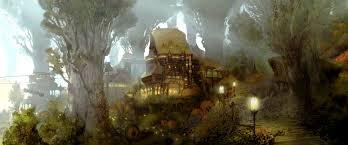
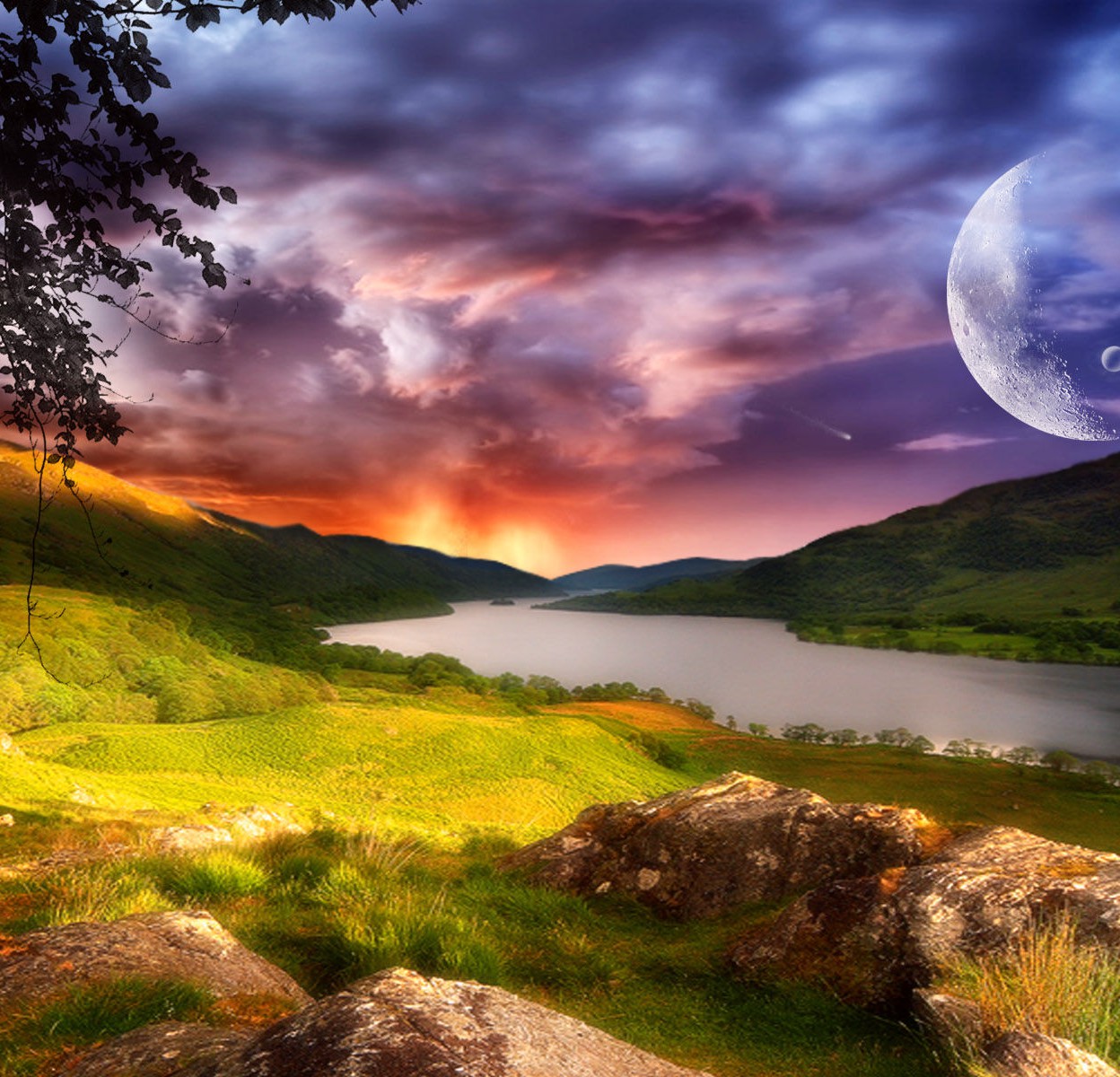
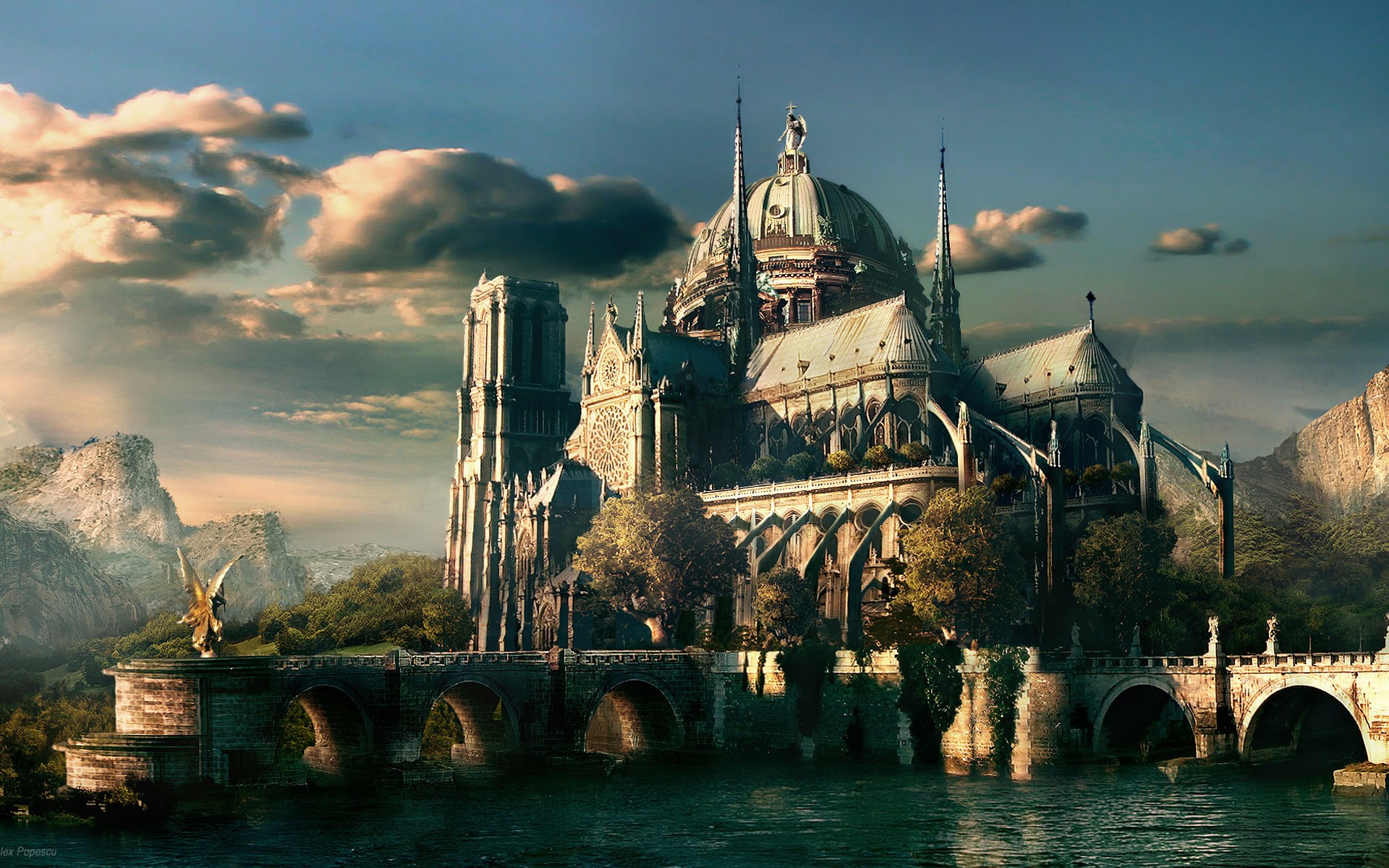
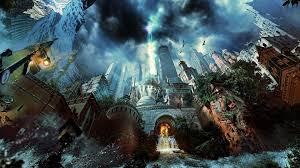
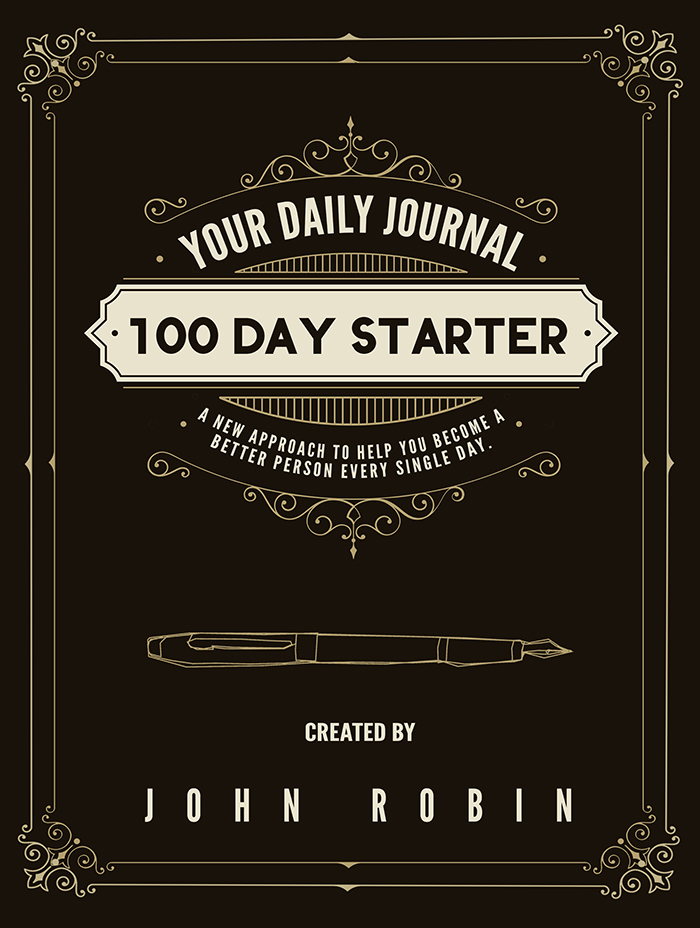
Reblogged this on Archer's Aim and commented:
It’s the most important foundation of a fantasy novel so this is an important question. There are all kinds of reasons to build a world but knowing the whys of what you are doing makes all the difference. Reblogging on Archer’s Aim.
Pingback: World Builders 3.0 – Level 1-1: Building a world for character | John Robins Blog